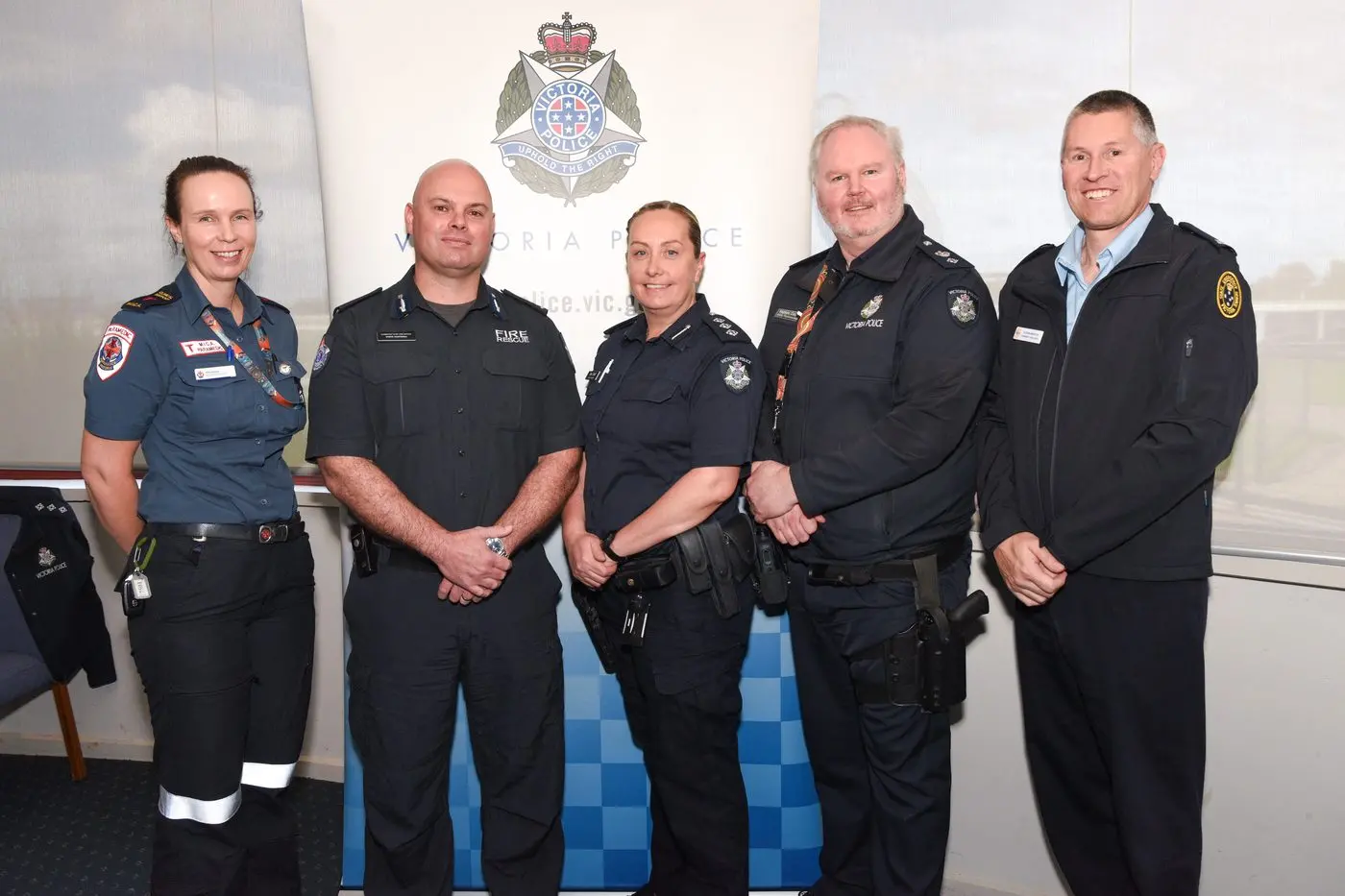PHOTO
COMMUNITIES across the Alpine and Moira shires and Rural City of Wangaratta converged to have their say at last week’s Road Policing/Road Safety Community Forum at Wangaratta.
Amid a rising road toll on the state’s roads, a panel of senior police representatives gathered with around 40 representatives from road safety partner agency stakeholders and a strong community representation present to discuss local roads trauma around the police service area (PSA).
Acting Superintendent Stephen Cooper visited the Wangaratta Turf Club forum from Eastern Regional Command along with police representatives from all three local government areas - Alpine, Moira and Wangaratta - in the PSA.
Acting Inspector Kym Clark of Wangaratta police said throughout the forum, police analysed statistics gathered over the past five years on deaths and serious collisions on our roads.
They were broken down into age, gender and road user type demographics and the top five causations of fatal collisions in the Wangaratta region were explored.
They included excessive speed, inappropriate speed for the conditions, disobey sign, driver unintentional and illness and disability.
According to statistics from the TAC, the Wangaratta PSA recorded the second most fatalities of any regional area across the state from 2018-2023, with 56 lives lost.
Act Insp Clark said road trauma has impacts in all parts of the community.
“Road safety is everyone’s responsibility, working with the community is critical to reducing harm and achieving our main vision of reducing deaths and no serious injuries on our roads,” she said.
“Enforcement is just one element of road trauma and the purpose of enforcement is to see a change of behaviour, to prevent road trauma before it happens.”
Act Insp Clark said discussions at the forum included how local police work with their councils to best prepare drivers for conditions in their respective areas.
“Our signage and our speed zones don’t always reflect the conditions of the roads, just because it’s a 100km/h zone, it doesn’t mean that’s always what you should do," she said.
“It’s about having the responsibility to identify your own limitations.
“People might think the main townships are our priority but actually a lot of it is our feeder roads, we’ve got people coming from different locations going to different areas.”
Police partner agencies attending the forum included representatives from the L2P mentoring program, SES, CFA, Ambulance Victoria and council.
Act Insp Clark said community members raised cyclist activity and driver behaviours around cyclists, police enforcement activity and how police target dangerous drivers in the area.
“Eastern District four (Wangaratta PSA) has the highest PBT enforcement activity across the Eastern Region, so in that space we’re doing above and beyond what the organisation expects of us from a policing perspective,” she said.
“We have crime reduction teams who are targeting particular individuals who are deemed to be at highest risk to the community.
“We encourage members of the community to use Crime Stoppers, to exchange and share information.
"If members of the community are seeing things, they call Triple 000 because there’s a dangerous driver, but if our resources are out in a different area we may not get to that in time.
“We pushed the community to call Crime Stoppers in those sort of situations, of course Triple 000 is for those urgent, attendance required incidents, but for those other things Crime Stoppers will give us a space to record that information, make further enquiries and investigate what we can.”
There have been 193 lives lost on Victorian roads so far this year, up from 183 at this time last year.
Act Insp Clark encouraged the community to continue to raise road safety issues or concerns with police so they can work towards a solution to reducing trauma in the region.





